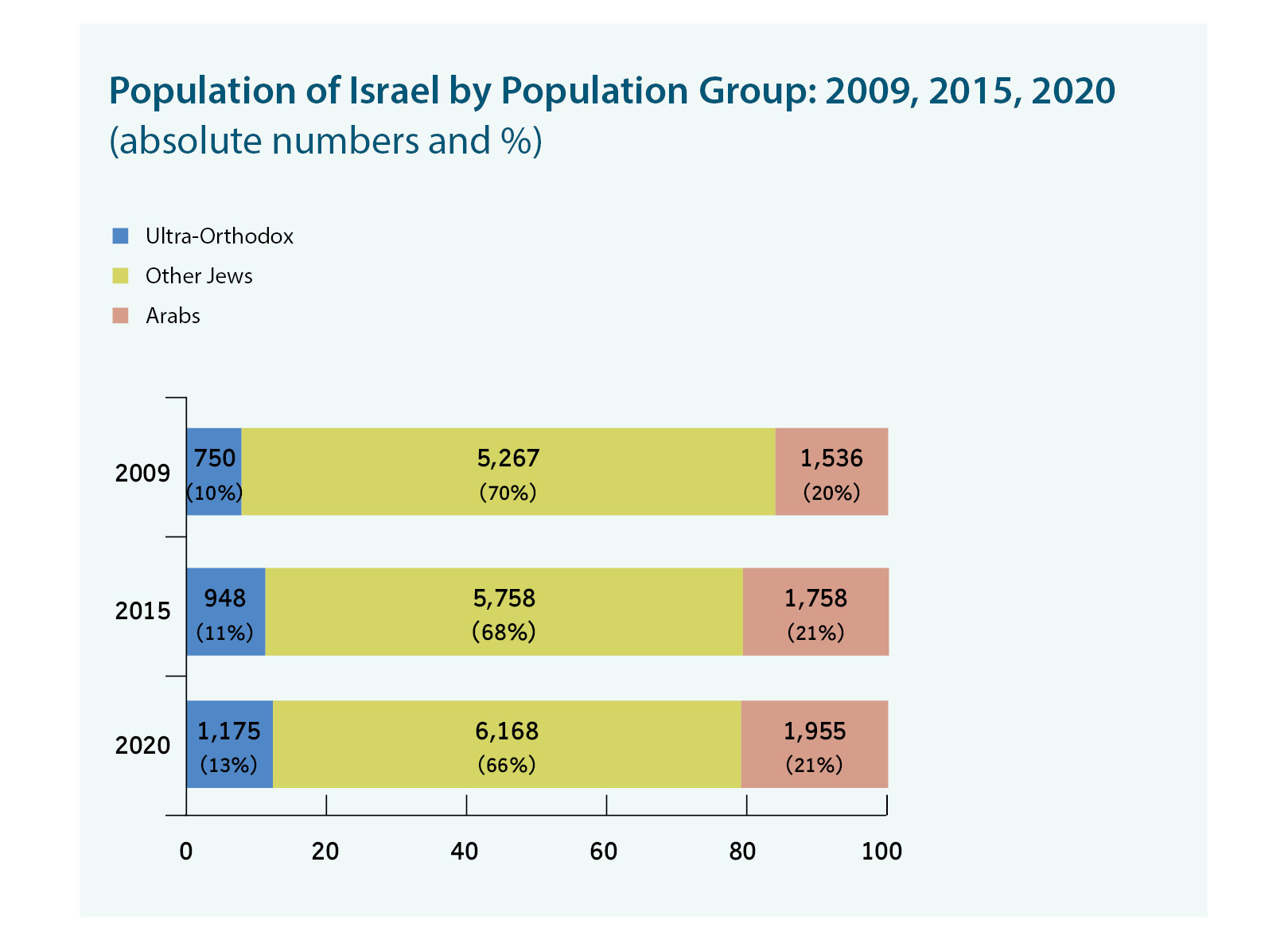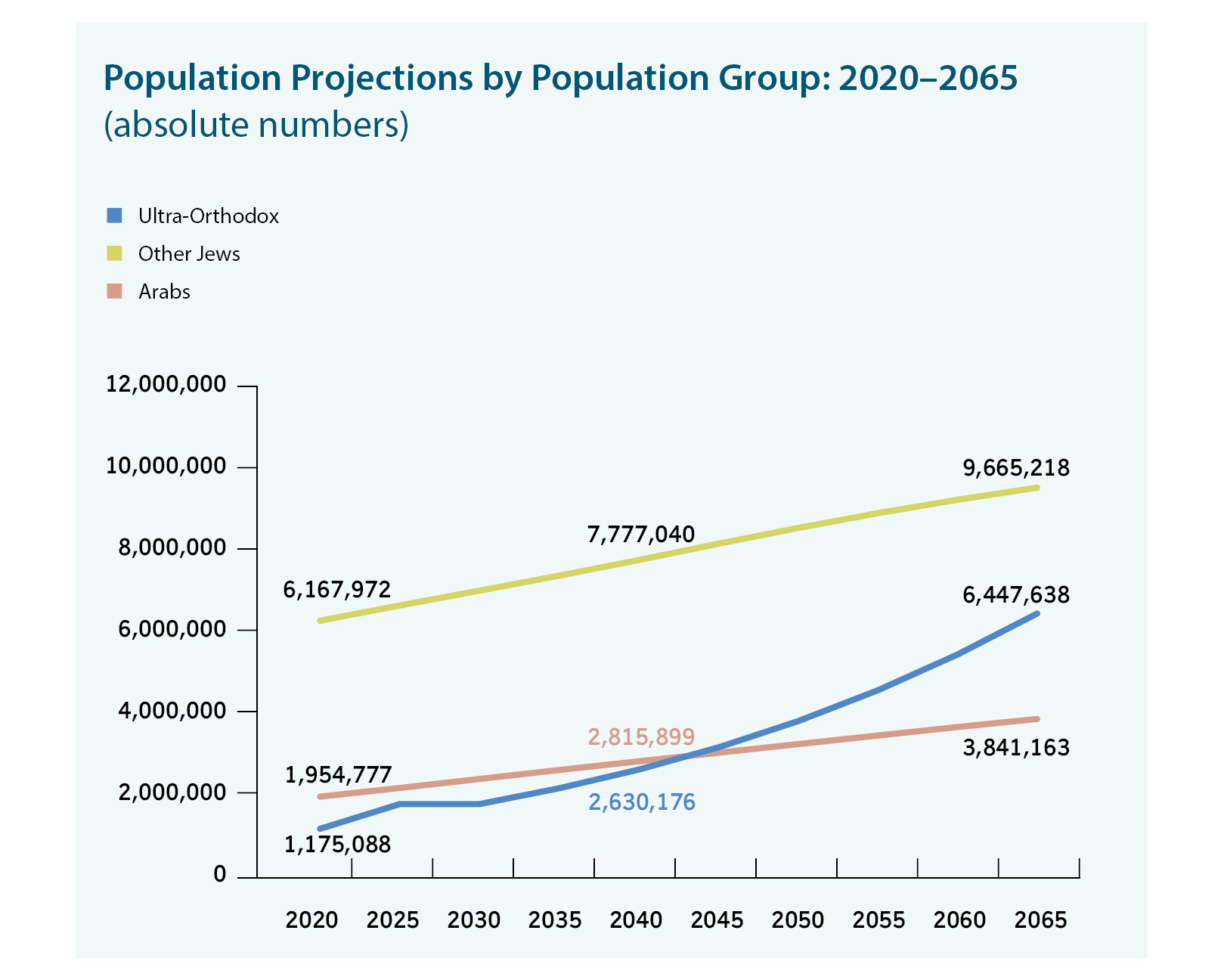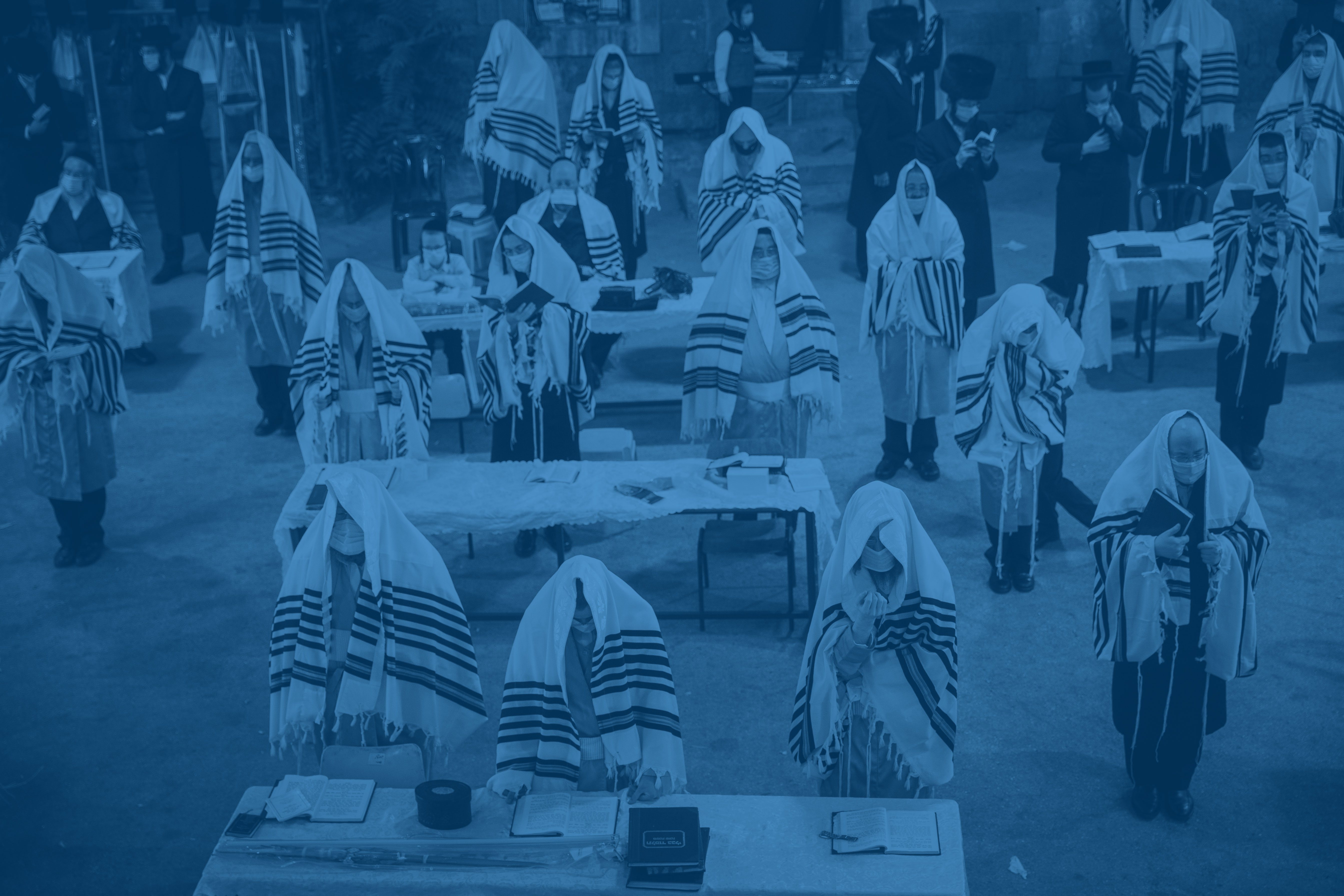Population
Chap. 1
Ultra-Orthodox Population
The rapid demographic growth of the ultra-Orthodox population both impacts its economic, social, and political standing in Israel, and attracts considerable public, media, and political attention. In 2020, the ultra-Orthodox population in Israel numbered approximately 1,175,000, representing 12.6% of the total population. It is expected to reach 16% of Israel’s population by 2030, and to grow to around 2 million people by 2033.
Growth and Fertility Rates
At around 4% per year, the growth rate of the ultra-Orthodox population in Israel is higher than that in any developed country worldwide. This can be explained by high fertility rates, modern standards of living and medical care, and a low age at marriage. As a result, the ultra-Orthodox population is very young—almost 60% are under the age of 20, compared with 30% of the general Israeli population.
Over the last decade and a half, there has been a moderate decline in ultra-Orthodox fertility rates in Israel, from 7.5 live births per woman between 1998 and 2004, to 6.6 between 2007 and 2019. Among other Jewish women in Israel, the fertility rate for 2018–2019 was 4 live births for national-religious women; 3.2 for traditional-religious women; 2.5 for traditional non-religious women; and 2.2 for secular women.
Geographic Distribution of the Ultra-Orthodox Population
The two “capital cities” of the ultra-Orthodox population are Jerusalem and Bnei Brak, which are home to 44.1% of ultra-Orthodox Israelis (as of 2018). Jerusalem is the larger of the two: 27.7% of the ultra-Orthodox population resides in the city, and 16.4% in Bnei Brak. The ultra-Orthodox “suburbs" of Modi’in Illit, Beitar Illit, and Elad are also home to large numbers of ultra-Orthodox Israelis, along with Beit Shemesh, in which the Ramat Beit Shemesh neighborhood is almost exclusively ultra-Orthodox. Together, these four cities are home to more than 22% of Israel’s ultra-Orthodox population.
Most ultra-Orthodox Israelis reside in cities in which they constitute a majority of the population: A third (34% ) in cities in which they make up more than 80% of the residents, and 37% in which they are a majority of less than 80%(including Jerusalem, in which the majority of Jewish residents are ultra-Orthodox). 11% reside in localities in which ultra-Orthodox residents constitute between 16% and 50% of the Jewish population, and the remainder, (18%) reside in localities in which they make up a lower percentage of the total population.















